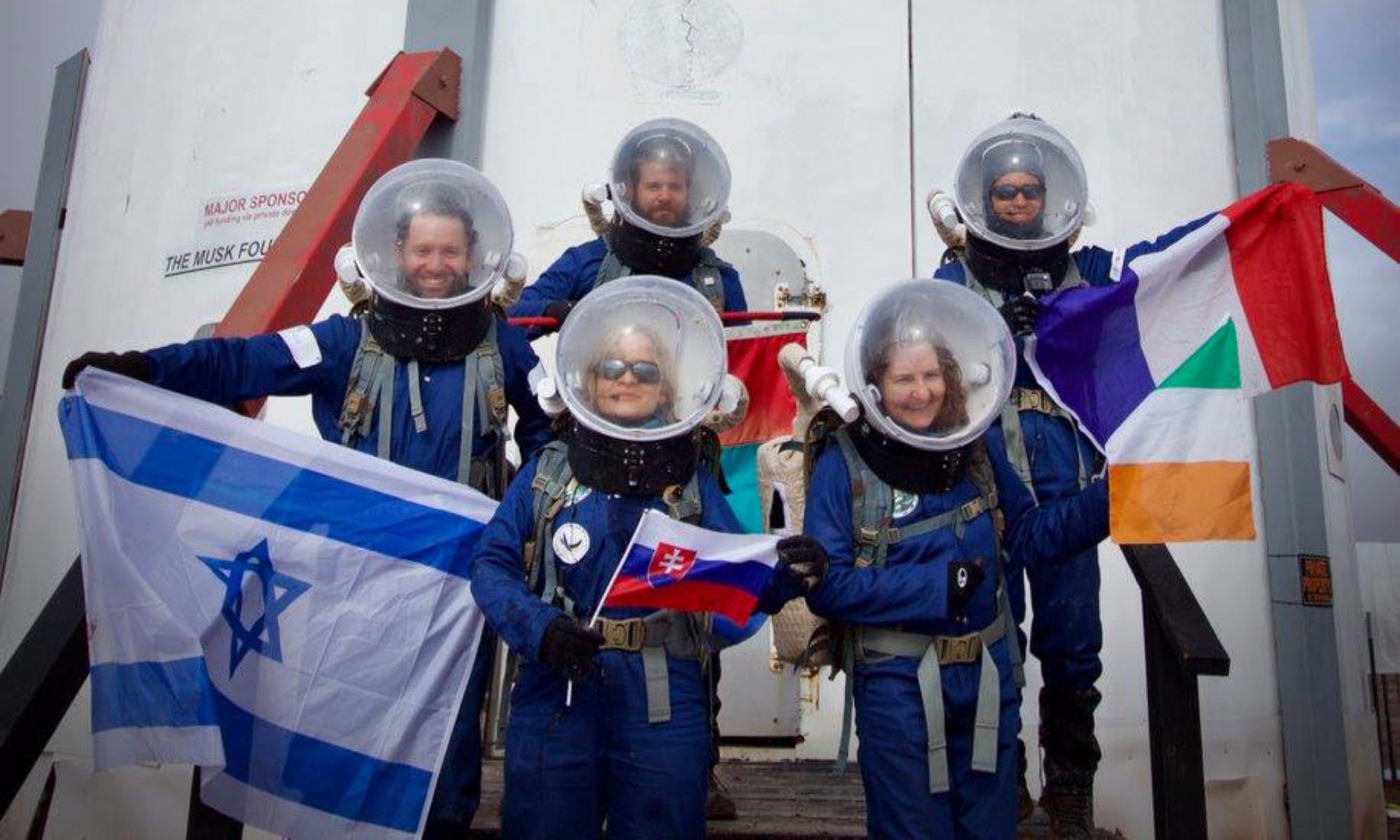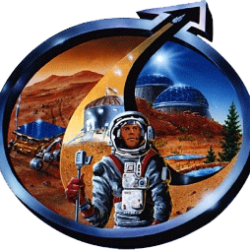Forwarded on behalf of Remote Crew Journalist Stuart Hughes:
LESSONS FROM AN ANALOG VETERAN
By Stuart Hughes, Remote Crew Journalist
One of the buzzwords of the moment is “hybrid” or “blended” working.
As we emerge from the pandemic, we’re living two parallel lives – one
of them in person and the other in the virtual spaces of Zoom and
Microsoft Teams that have become our natural habitat over the past 18
months.
So it is with MDRS Crew 228. We are perhaps the first “hybrid” crew.
Our original mission date was for April 2020. Then COVID struck and
turned all our lives upside down. Remaining travel restrictions mean
we’ve been unable to come together in the Hab as we’d hoped and
planned for. As if to add insult to injury, the long-awaited news of
the lifting of the travel ban to the US came just last week – although
the changes won’t come into force in time for us to jump on a plane
and join our crew mates. So while half the crew carry out our mission
on “Mars,” the other half are watching on with more than a twinge of
jealousy from our home countries.
Prior to our original mission date I sought some advice on how to
approach a space analog mission from Anastasia Stepanova. Anastasia is
an engineer at the Russian Academy of Science. She spent a total of 10
months participating in space simulations with the Mars160 and SIRIUS
projects. When I met Anastasia, little did I know that COVID-19
lockdowns were just around the corner and the whole world was about to
gain more experience of living in isolation than any of us could have
imagined!
In my job as a BBC journalist, I’m plugged into the news cycle all
day, every day. I confess that suddenly being cut off from that
constant stream of information was the thing I was fearing most during
my time at MDRS.
Anastasia trained as a journalist, so I asked her how she coped with
living in an information black hole.
"We didn’t have the internet, only an internal server, but the
psychological team would send you information if you requested it,”
she told me.
“Funnily enough, nobody in our crew asked for any news, apart from
space news! I was asking for space news – so they sent me screen grabs
from space.com. But we didn’t know what’s going on in the world.
“I liked that. I had a little break from all that. A digital detox is
the best thing I had – I still miss it! It’s harder when you’re in
civilization but I still try to go to the countryside on the weekends
and not check my phone for a whole day."
Not being able to monitor the TV news bulletins for months on end may
not have troubled Anastasia Stepanova but there were some reminders of
home she yearned for while taking part in analog missions.
“You start to miss smells and sounds,” she admitted.
“In the last simulation (SIRIUS) we had a really artificial
environment. We were in a hermetic chamber and we had a unique
atmosphere, totally independent from Earth’s. The air pressure was 3%
higher than on Earth to keep dust particles out. We had the sound of
the ventilation but we didn’t have the sound of the wind or rain or
waves. We didn’t have pleasant smells. When mint appeared in the
greenhouse everyone came there to smell it and remember the Earth. You
also miss colours and lights. I think the design of a future space
station is very important. It should be a mixture of high tech and
very earthy.”
I asked Anastasia for her personal tips for coping with the
confinement of an MDRS mission, never anticipating that I’d soon be
using them inside the four walls of my own home in London!
"Always separate the professional from the personal,” she advised.
“If you discuss something and have a disagreement, don’t take it
personally. Keep your sense of humour – in all my crews we had a sense
of humour, and it saved us so many times. When we had conversations
that were on the edge, jokes would lighten things up and we could move
on. If you feel a bit irritated, try to put yourself in the other
person’s place or go and do some exercise.
“If something bothers you, calm down first and then discuss how you
can sort it out. That’s the key. I know it’s hard, especially when
you’re in there and everything seems so big. But just breathe out,
breathe in, do some yoga or meditation, write, play video games or
listen to music. I did yoga in front of the greenhouse, so I had my
"Earth corner." Just take some time for yourself and then you can
react.”
Although it’s frustrating not to be able to be alongside my crew mates
at MDRS, my frustration dissolves into nothing when I remind myself of
the overarching goal – to create a permanent human presence on Mars.
As Anastasia Stepanova says, “For the first time ever in history maybe
we’ll build a life on Mars. Maybe we’ll be the ones who see how the
whole conception of our existence changes – and that’s amazing.”
The pandemic that has ruled our lives for too long will pass and the
chance to fulfil my long-delayed dream of visiting MDRS will come. If
there’s one thing COVID has taught us, it’s the importance of patience
and the ability to overcome disappointments and setbacks.
The end goal is worth the wait.
END

